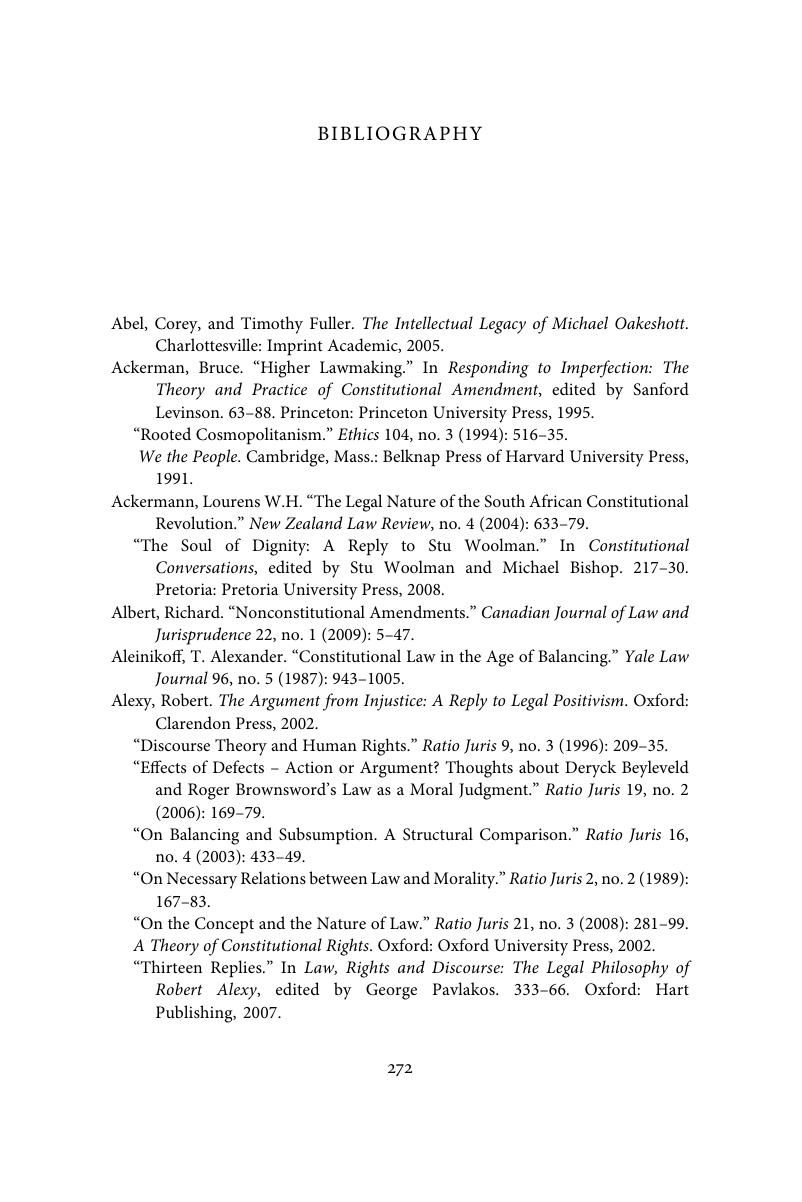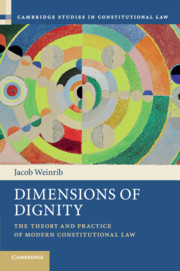Book contents
- Dimensions of Dignity
- Cambridge Studies in Constitutional Law
- Dimensions of Dignity
- Copyright page
- Dedication
- Dedication
- Contents
- Book part
- Table of Constitutions
- Table of Cases
- 1 Human dignity and public law
- Part I The normative dimension
- Part II The constitutional dimension
- Part III The doctrinal dimension
- Bibliography
- Index
- References
Bibliography
Published online by Cambridge University Press: 05 September 2016
- Dimensions of Dignity
- Cambridge Studies in Constitutional Law
- Dimensions of Dignity
- Copyright page
- Dedication
- Dedication
- Contents
- Book part
- Table of Constitutions
- Table of Cases
- 1 Human dignity and public law
- Part I The normative dimension
- Part II The constitutional dimension
- Part III The doctrinal dimension
- Bibliography
- Index
- References
Summary

- Type
- Chapter
- Information
- Dimensions of DignityThe Theory and Practice of Modern Constitutional Law, pp. 272 - 293Publisher: Cambridge University PressPrint publication year: 2016



